Program
Program
Plenary Sessions – Confirmed Speakers
Plenary 1 on ISODP-DICG: Financial Neutrality in Deceased Donation and Transplantation
Perspective from Philippines
Benita Padilla, Philippines
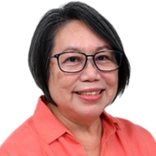
Dr. Benita Padilla is a nephrologist at the National Kidney and Transplant Institute, the leading transplant center in the Philippines. She has served as president of the Philippine Society of Nephrology. She is a long-time advocate for ethical practices in transplantation and is currently a member of the Executive Committee of the Declaration of Istanbul Custodian Group and is also a member of the WHO Task Force on WHO Task Force on Donation and Transplantation of Human Organs and Tissues. Her research interests are focused on organ donation and access to care for kidney diseases.
Prof. Riadh A.S. Fadhil
Professor of Urology & Transplant Surgery
Director, Qatar Organ Donation Center
Hamad Medical Corporation / Weill Cornell College of Medicine – Qatar
Councilor-at-Large, Middle East & Africa, The Transplantation Society
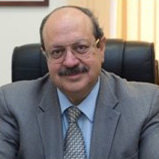
Prof. Riadh A.S. Fadhil has a distinguished career spanning over four decades in organ donation and transplantation. A graduate with honors from the Baghdad College of Medicine in 1977, he completed his fellowship training in the United Kingdom in 1986 before returning to Iraq, where he played a pivotal role in developing the country’s transplant infrastructure. In Iraq, he served as Professor of Surgery, Dean of the College of Medicine, and founder of both the University Kidney Transplant Center and the Iraqi Association of Nephrologists and Urologists. He also held leadership roles such as Director of the Medical Research Center and Editor-in-Chief of the Iraqi Journal of Medical Sciences.
In 2004, Prof. Fadhil relocated to Qatar, where he had a leading role in the establishment of the country’s multi-organ transplantation program. He pioneered the internationally recognized Doha Model for organ donation—an inclusive and equitable system ensuring fair access to transplant and donation services for all residents, regardless of nationality or citizenship.
A passionate advocate for ethical organ transplantation, Prof. Fadhil emphasizes the importance of international collaboration, combating organ commercialism, and building trust within diverse communities. His commitment to global transplant equity inspired the creation of the ROOTS (Reach Out for Organ Transplant Self-sufficiency) initiative in 2018, and more recently, the Doha International Center for Strategy and Leadership in Organ Donation and Transplantation in 2024.
Prof. Fadhil has served several key international advisory roles, including:
Councilor, Declaration of Istanbul Custodian Group (2014–2018) Member, TTS Ethics Committee (2014–present) Member, WHO Taskforce on Organ Donation and Transplantation (2018) Councilor-at-Large for the Middle East & Africa, The Transplantation Society (2024–2028)
He has authored over 70 peer-reviewed publications on topics ranging from kidney transplantation and urology to organ donation ethics, including issues of equity, financial neutrality, donor evaluation, anti-trafficking measures, and access for migrants and minority populations.
Prof. Fadhil’s visionary leadership has positioned Qatar as a global exemplar in ethical organ donation, earning him widespread recognition and respect across the international transplant community.
Perspective from India
Pallavi Kumar, India
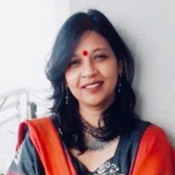
Executive Director (Delhi-NCR) at MOHAN (Multi Organ Harvesting Aid Network) Foundation
Ms Pallavi Kumar is the Executive Director of MOHAN Foundation, a National NGO that has been working for 25 years to promote deceased organ donation and transplantation in the country. She was instrumental in setting up the NCR office of MOHAN Foundation in 2011. She has subsequently provided support to start the Rajasthan and Manipur office of the Foundation.
Pallavi’ skills lie in working closely with hospitals (both government and private) to help them put systems in place promote deceased organ donation. She has been closely and passionately involved in the unenviable task of speaking to families in their time of grief and loss, encouraging them to consider organ donation to save other lives. She is one of the main trainers of the Foundation and has been part of capacity building programs across the country.
Pallavi has scaled Everest Base Camp (17600 feet) in 2018 & Mount Kilimanjaro (19,341 feet) in 2019 as her tribute to organ donor and their families.
Plenary 2 on Intersection between End-of-Life Care and Donation Decision
US model with OPO center
Richard Hasz, United States
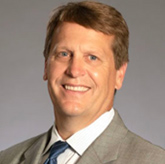
Rick Hasz is President of Gift of Life Donor Program where he sets strategic direction for all clinical and administrative activities of this non- profit, independent organ procurement organization (OPO), to provide organ and tissues for transplantation. Additionally, he oversees Gift of Life’s Family House, Gift of Life Institute, Transplant Foundation, and Transplant Pregnancy Registry International and works with over 300 hundred employees and volunteers and represents the organization in local, regional, national and international forums. Rick has shared his knowledge and expertise with government and other national organizations. He served as a faculty member for the HRSA Breakthrough Collaborative and has provided expert testimony for National Academy of Sciences on Organ Donor Intervention Research, Donation after Circulatory Death, and, most recently, on a Fairer and More Equitable, Cost-Effective, and Transparent System of Donor Organ Procurement, Allocation and Distribution. He also provided testimony to the HHS Advisory Committee on Blood & Tissue Safety & Availability. Recently Rick served as a technical expert panel member for the CMS Kidney Transplant Initiative. Rick holds membership in the North American Transplant Coordinator’s Organization, the American Society of Transplant Surgeons and the American Association of Tissue Banks. Rick is a past President of the American Board of Transplant Certification and holds certifications as a Certified Procurement Transplant Coordinator and a Certified Transplant Preservationist. Rick has delivered lectures and educational sessions for over 70 organizations and professional societies in the U.S. and internationally. He has also contributed to over 30 publications in peer reviewed journals to improve the science of donation and transplantation. Rick obtained his Bachelor of Science degree in Biology from Pennsylvania State University and a Master of Forensic Science degree from George Washington University.
End of life care and DCD in Japan
Shoji Yokobori, Japan
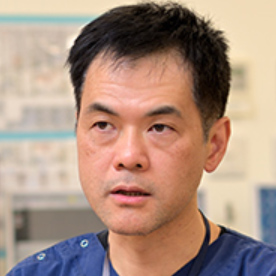
Dr. Shoji Yokobori is a professor and chair of the Department of Emergency and Critical Care Medicine at Nippon Medical School and the director of its Advanced Critical Care Center.
He graduated from Gunma University School of Medicine in 1999 and trained in emergency medicine, neurosurgery, and anesthesiology at various institutions, including Nippon Medical School Hospital and Musashino Red Cross Hospital.
From 2010 to 2013, he was a visiting researcher in neurosurgery at the University of Miami. He became an assistant professor in 2013, an associate professor in 2018, and a full professor in 2020. His research focuses on fibrinolysis abnormalities in traumatic brain injury, heatstroke-related organ failure, and critical care innovations.
He has published extensively in international journals and contributed significantly to emergency medicine in Japan. Dr. Yokobori is a leading expert in emergency and trauma care, contributing to both clinical practice and academic research.
Ante-mortem interventions
Matthew Weiss, Canada
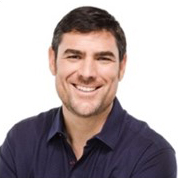
Matthew Weiss is a pediatric intensivist working in Quebec City at the CHU de Quebec and an assistant professor at the Université Laval. He has multiple provincial and national donation roles, including medical director of donation at Transplant Quebec. His research interests focus on the implementation of legislative and policy reform in organ donation. He is the national lead of the LEADDR research program on implementation of reforms in Nova Scotia and has participated in the development of several best practice guidelines. His peer reviewed publications touch on diverse aspects of adult and pediatric donation and he has presented on these topics in local, national, and international scientific conferences.
Intensive care to facilitate organ donation
Nuria Masnou, Spain
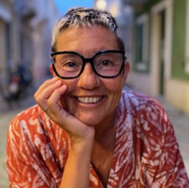
Graduated in Medicine and Surgery in 1989 at the Autonomous University of Barcelona.
Specialist in intensive care medicine, trained at the University Hospital of Bellvitge (1991-1997).
European Transplant Coordinator (ETCO certification) 2005.
Master on Bioethics and Law: health Issues and Biotechnology, VI course, organized by Observatori de Bioètica i Dret de la Universitat de Barcelona, 2004-05.
Auditor by ONT (Organizacion Nacional de Trasplantes) for QAP (quality assurance program).
Master’s in Healthcare Management
Participation in European projects for the development of donation (TAIEX_Turkey_ 2011).
Participation as a professor with DTI Foundation in projects in China, Ethiopia, India, Portugal and Spain for the development of organ donation programs (from 2008 until now).
Organizer of: Annual Training course on cadaveric donation for intensive care residents (XV edition in 2023).
Annual training course for Emergency Health care workers (VIII editions).
Active member and board member in transplant societies: EDTCO (European coordinators society) chair position (September 2023-2025); Member of Catalan Society of Transplant (SCT) and Spanish Intensive Care Society (SEMICYUC).
Last job: Donation and Transplant Coordinator at University Hospital Vall Hebron in Barcelona (2004-2014).
Actual position:
Regional donation and transplant coordinator at Regió Sanitaria de Girona and University Hospital Dr. Josep Trueta de Girona from (2015 until now).
Regional referent of euthanasia (MAID) in Catalonia, Spain.
ORCID: http://orcid.org/0000-0003-0488-2250
ResearcherID: http://www.researcherid.com/rid/M-8967-2014
End of life care practices and opportunities for organ donation
Helen Opdam, Australia
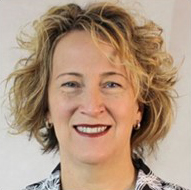
Associate Professor Helen Opdam is the National Medical Director of the Australian Organ and Tissue Authority. She is a Senior Intensive Care Specialist at the Austin Hospital in Melbourne and Director of Warringal Private Hospital Intensive Care Unit. Helen is President of the International Society for Organ Donation Professionals (ISODP), currently serving a 2-year term (2023-2025).
Plenary 3 on Current Challenges and Progress in Death Determination: Impact and opportunities for donation?
Definition of death
Sam Shemie, Canada

Sam D. Shemie MD
Division Director, Pediatric Critical Care, Montreal Children’s Hospital,
McGill University Health Centre
Associate Investigator, McGill University Health Centre Research Institute
Professor of Pediatrics, McGill University
Honourary Staff Physician, Department of Critical Care Medicine, Hospital for Sick Children, University of Toronto
Medical Advisor (Deceased Donation), Canadian Blood Services
Member, Order of Canada
Shemie’s area of interest is organ replacement during critical illness and the continuum between life, death and oxygen delivery. He is a Division Director of Pediatric Critical Care Medicine, pediatric critical care physician and ECMO specialist at the Montreal Children’s Hospital, McGill University Health Centre. He is a Professor of Pediatrics at the Montreal Children’s Hospital, McGill University and honourary staff in the Department of Critical Care Medicine, Hospital for Sick Children, University of Toronto. He is medical advisor, deceased organ donation, with Canadian Blood Services. His academic focus is advancing the science and practice of deceased organ donation. His research interests include the clinical and policy impact of organ failure support technologies, the development and implementation of national/international ICU-based leading practices in organ donation and research at the intersection of end-of-life care, dying, death and deceased donation.
Unified concept of death definition
Francesco Procaccio, Italy
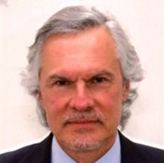
Keynote session on Artificial Intelligence (AI) in Donation Systems: The potential advantages and ethics of utilization in donor identification and allocation
Behavioural science for better health and AI
Kristina Curtis, United Kingdom
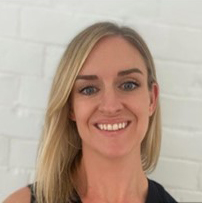
Dr Kristina Curtis is a pioneer in translating behaviour change science into practice with over a decade of experience in developing digital behaviour change interventions (DBCIs) for a range of preventative health behaviours including weight management, physical activity, health service uptake and self-management of chronic conditions as well as medication adherence. Kristina also works with a range of organisations from the European Centre for Disease Prevention and Control (ECDC) and the foreign office (FCDO) in building expertise and capacity for applying behaviour change science to working practices.
Kristina is founder of a behavioural science consultancy, Applied Behaviour Change specialising in helping organisations apply behavioural science tools in a systematic, rigorous and yet practical way through training, contract research and consultancy. Kristina is an Honorary Lecturer and Associate for UCL’s Centre for Behaviour Change where she delivers regular teaching and PhD supervision.
Donation advisor that would help predict the likelihood of a patient becoming a donor in certain circumstances
Sonny Dhanani, Canada
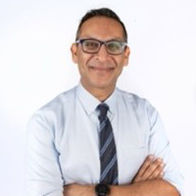
Dr. Dhanani is the chief of the pediatric intensive care unit at the Children’s Hospital of Eastern Ontario (CHEO) in Ottawa and Associate Professor (Pediatrics) at the University of Ottawa. He has been the chief medical officer- donation and medical lead for research for Trillium Gift of Life, Ontario’s organ procurement organization. He is Chair of the newly formed Canadian Donation Physician Network, and is Chair of Canadian Blood Services’ Deceased Donation Advisory Committee. He is associate director for donation research for the Canadian Donation and Transplant Research Program. He is leading international research pertaining to practices and standards for determining death after cardiac arrest for the purposes of donation.
Plenary 4 on Ethical Guidance for Research Involving Deceased Donation and Transplantation
WHO SOHO INNOVATION in donation and clinical application of substances of human origin OR Why is a framework for deceased donor research required?
Gabriel Oniscu, Sweden

Gabriel Oniscu is Professor of Transplantation Surgery and Head of Transplant Division at the Karolinska Institutet in Stockholm. He completed his surgical and transplant training in Edinburgh, Birmingham and Kings College London and is a Fellow of the Royal College of Surgeons of Edinburgh and Royal College of Surgeons and Physicians in Glasgow. He is the past Director of the Edinburgh Transplant Centre and former Transplant Advisor to the Chief Medical Officer in Scotland.
His clinical focus is multi-organ transplantation. Gabriel has been one of the pioneers in the field of novel organ perfusion and preservation technologies in the UK and has made a significant contribution to the development of Normothermic Regional Perfusion in DCD donation. He has a particular research interest in the role of technology in transplantation, organ perfusion and reconditioning and optical sensing.
Prof Oniscu is the recipient of the NRS Career Research Fellowship, an MRC confidence in concept award for technological developments relating to normothermic perfusion and an MRC Clinical Academic Research Partnership grant to investigate therapy delivery during ex situ liver perfusion. He published over 150 papers, 15 book chapters, edited two books and gave more than 100 invited lectures at international conferences.
Prof Oniscu is the President of the European Society for Organ Transplantation.
Overview of the INTEGRITY project - present the culmination of the first 12 months - stage 1 of this work
Dominique Martin, Australia
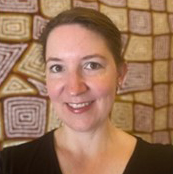
Dominique has led curriculum design, development and implementation ethics, law and professionalism within the medical program at Deakin, and is also leading development of a clinical ethics program for qualified health professionals. Her research focuses on ethical issues in nephrology, organ and tissue donation and transplantation, and on professionalism in healthcare. Her current projects are focused on international travel for organ transplantation (ITOT); ethical issues in innovative research in donation and transplantation (the INTEGRITY project); and ethics education for kidney care professionals (EKC).
Dominique has previously served as co-chair of the Ethics Committee of the Transplantation Society (TTS) and of the Declaration of Istanbul Custodian Group, and as Councillor for Oceania at TTS. Dominique is co-chair of the European Society of Organ Transplantation (ESOT) Consensus Project on Donation after Circulatory Determination of Death, and a member of the ESOT Task Force for Advanced Therapy Medicinal Products (ATMP). She was a member of the joint ethics task force of the International Society of Nephrology (ISN), the American Society of Nephrology and the European Association. Dominique was the inaugural Chair of the Asia Pacific Bioethics Education Network, and is a founding member of the Doha International Academy for Organ Donation. She has also served as an ethics consultant to the World Health Organization and the Australian Organ and Tissue Authority.
Consent for research in deceased donation
Frederick D’Aragon, Canada

Closing Plenary on Addressing Disparities and Performance in Organ Donation: The Role of ISODP
Identifying Gaps in Organ Donation: How ISODP Can Drive Change
Jeffrey P. Orlowski, United States
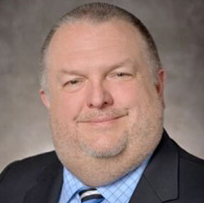
Jeff is President and CEO of LifeShare Network and its subsidiary organizations, is President of the LifeShare Foundation, and consults nationally and internationally. Jeff has 38 years of experience in organ and tissue donation and a history of Board and community service. He currently serves as Vice President of the International Society for Donation Professionals, as a member of the MTF Biologics Board of Directors, as Vice Chair of the Donation Board of Trustees for MTF, and as Chair of the Oklahoma Governor’s Advancement of Wellness Advisory Council. He is a Past President of AOPO and of Donate Life America and has served multiple terms on the UNOS and OPTN Boards. He has been honored with numerous awards professionally and in the broader community. He has authored or coauthored numerous journal articles, has presented scientific abstracts and invited lectures around the world, and he is a Fellow of the American Society of Transplantation.
Advancing donation in Eastern Asia; perspective(s) from South Korea
Samuel Lee, South Korea
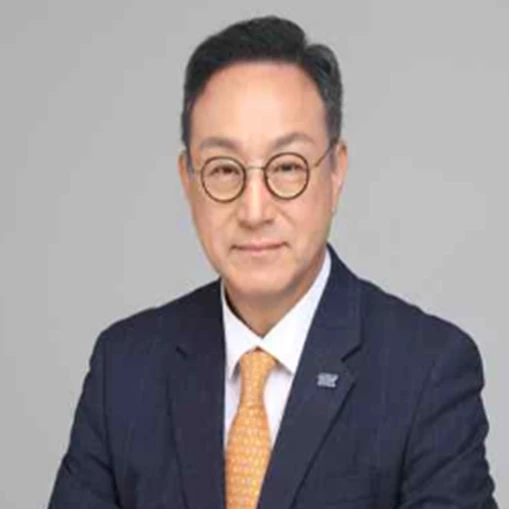
Date of Birth
March 15, 1959 | Seoul, Korea
Education
• Ph.D. in Medicine, Chonbuk National University College of Medicine, August 1996
• M.S. in Medicine, Soonchunhyang University College of Medicine, February 1992
• M.D., The Catholic University of Korea College of Medicine, February 1984
• Graduated from Wooshin High School, February 1978
Professional Experience
• May 2024 – Present: President, Korea Organ Donation Agency (KODA)
• 2003 – 2024: Professor, Hallym University College of Medicine
• 2021 – 2024: Chairman, Life Sharing Association (NGO)
• 2002 – 2019: Board Member, Korean Society for Transplantation
• 2003 – 2015: Board Member, Korean Society for Vascular Surgery
• 2014 – 2015: Director, Hallym University Kangdong Sacred Heart Hospital
• 2008 – 2014: Chief, Department of Surgery, Hallym University Kangdong Sacred Heart Hospital
• 1998 – 2003: Associate Professor, Hallym University College of Medicine
• 1994 – 1998: Assistant Professor, Hallym University College of Medicine
• 1989 – 1994: Clinical Director, Jesus Hospital
Honors and Awards
• 2016: Citation of Merit, Mayor of Seoul
